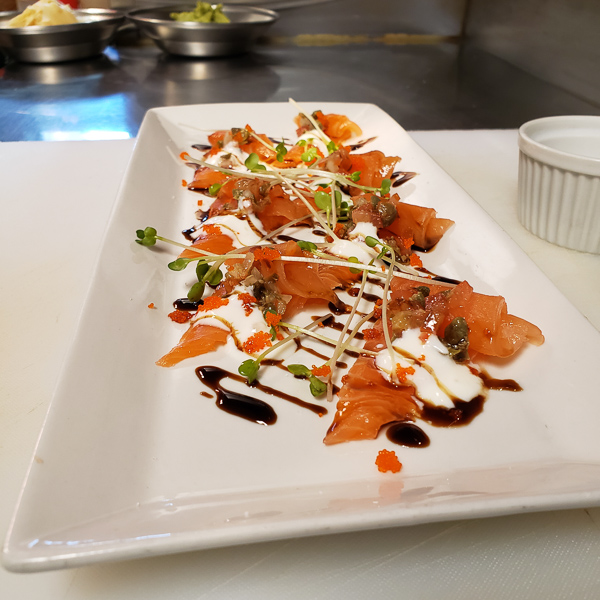Chef Han is a Master of Korean Cuisine
Chef Han, Kosoo Restaurant + Raw Bar, incorporates British Columbia’s fresh ingredients and the pure goodness of Mediterranean influences to infuse his unique West Coast style Korean comfort food.
Building on a foundation of his passion for the cuisine of Korea and fresh B.C products, Chef Han uses the multifaceted layers of French cooking, the pure goodness of Mediterranean influences, and the artistry of Japanese presentations.
On a recent visit to his restaurant to shoot a video, we had an opportunity for a quick Q and A with the chef.
Would using local products alter the flavours of authentic Korean food?
Well in Korea the most important aspect of any dish is fresh ingredients so here in Vancouver we have the best, the freshest ingredients so just like in Korea, whenever we use fresh ingredients the result is beautiful and authentic.
Wild or farmed, or both?
Farmed, I have mentioned this before, farmed fish is always fresh because we got that fish within 2 or 3 days from the sea. Wild is fine during the seasons, but off season I have no idea when they were caught, or how old it is. Sometimes when I cut it, it is like whoa…I don’t know what it is. I don’t know what they have been eating and how long it was frozen for, or even where it came from.
Do you buy the whole fish, or do you get it already prepared?
We do it all ourselves, I prefer to handle the fish from whole to portions, from nose to tail. It is a personal relationship between the chef and their salmon, we use all of it including the trimmings.
Is seafood a big part of Korean cuisine?
I love everything including seafood but because I live in Vancouver and I love local ingredients I promote local ingredients. I mean, Korean food is meat focussed so what I do here is work with both seafood and meat while retaining our true soul food. Seafood is a big part of our West Coast culture so I incorporate fresh local seafood, and fresh local meat equally into our menu.
Is salmon popular in Korea?
Salmon is very popular in Korea now, like 12 years ago before I moved to Vancouver we could not buy salmon that easily, now salmon from BC is everywhere. I mean we love our sashimi too and one of our popular food was sashimi. Before sashimi used to be with white fish, now it is salmon sashimi with very high quality salmon.
The reason salmon became a big sashimi fish is because in Japanese cuisine they wanted to add colour, it was about aesthetics and art. Now everything has changed and people know why salmon is good and healthy, especially Korean women they promote the health benefits of salmon.
Did you know in Seoul there are sushi restaurants that only serve Canadian salmon? Only salmon, the whole menu!
Tell us about this salmon dish.
This dish, created by me, is called Salmon Carpaccio, which is not fully Japanese, more an Italian influenced sushi dish but here we can use a very good quality of salmon sashimi together with some Italian flavour like tomato salsa and yogurt dressing and a balsamic reduction. So, yeah this is not really a Japanese dish but it is a sushi dish everybody can try.
Chef Han is a master at balancing Seoul and Vancouver by bringing the two cities’ authentic culinary characteristics alive on his plates at Kosoo Restaurant + Raw Bar.
“My menu was very West Coast Food-fusion focussed but since I got back from Korea, my restaurant went back to my Seoul food, which is the foundation of my restaurant menu, but I can still twist it with other influences. Mostly our new menu is about Seoul, our souls, traditional Korean food.”
Check out Kosoo Restaurant at 832 Cardero St, Vancouver, BC. Try it, it is so worth the visit.
Related Links:
Broiled Salmon with Blistered Cherry Tomatoes
Leadership by example to combat plastic pollution
Chef Ned Bell, an eco-sustainable revolutionary when it comes to fish farming

